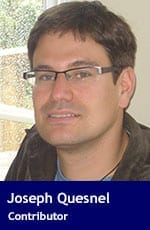 Canada is missing out on an opportunity to help Indigenous communities access a cheaper and more reliable form of clean energy in a zealous pursuit of certain renewable energy sources.
Canada is missing out on an opportunity to help Indigenous communities access a cheaper and more reliable form of clean energy in a zealous pursuit of certain renewable energy sources.
In its recent climate plan, the federal government committed to reducing the reliance of remote communities on diesel fuel. Many First Nation, Métis and Inuit communities rely on diesel to power their homes, schools, and public buildings. Many non-Indigenous remote communities are also dependent on diesel fuel.
According to the Conference Board of Canada, besides emitting harmful air pollutants, diesel-powered generators are unreliable and overly expensive.
It is in everyone’s best interest to reduce the use of this energy source, including all taxpayers. The delivery of liquefied natural gas (LNG) presents a reliable, affordable, lower emissions solution. But the government’s plan completely overlooks natural gas as a solution to energy insecurity in these off-grid communities.
| RELATED CONTENT |
| Indigenous communities see ocean of opportunity in oil and gas By Kerry Jothen |
| A path to prosperity for Indigenous communities By Rodney Clifton |
| Why do we keep electing energy idiots? By Terry Etam |
For some perspective, the Canadian Chamber of Commerce reports that the cost of diesel-generated electricity in remote parts of Ontario is three to 10 times higher than the provincial average.
To compound problems, the high costs also increase operating costs for industries in remote regions by as much as 30 to 60 per cent, the Chamber said. Dependency on diesel reduces the economic viability of many Indigenous and remote communities.
The federal government is not ignorant of the problem, as they have set a goal to end this reliance by 2030.
Of course, this will be easier said than done. The central problem is not the target but how these communities are expected to wean themselves off diesel power.
Government programs involve only certain renewable fuels that make use of solar, wind, and bioenergy systems. The federal government is using costly subsidy programs to promote these energy sources.
There is no question that renewable energy can and should be part of the solution. There are many successfully deployed renewable energy projects in First Nations communities in Canada.
But, as the Chamber noted, LNG offers many benefits for these communities, including affordability, megawatt capacity, and reliability. Natural gas can also work in tandem with renewable energy projects to provide the base-load electric supply to address intermittent supply from the wind and sun.
But LNG as a solution for remote communities is being significantly overlooked.
Most homes, buildings and institutions in mainstream Canada have access to natural gas delivered through pipelines.
At this point, it is not feasible to connect pipelines to many remote reserves because of location. But it is now possible to liquefy, transport and store natural gas in smaller amounts to support remote regions. There are communities in the far northern reaches of Canada like Inuvik and Whitehorse that already use LNG for their energy needs.
Building LNG facilities to service remote communities will generate jobs and economic growth, not to mention reduce Canada’s overall carbon footprint, the Chamber said.
To better service remote communities, Canada must encourage the growth of more LNG plants and strategically located depots to deliver natural gas.
To effectively address energy shortcomings and transition remote Indigenous communities off diesel, Canada must adopt a policy that recognizes the environmental and cost benefits of LNG.
Joseph Quesnel is a Nova Scotia-based consultant with the Canadian Energy Centre. He is Quebec Metis by heritage.
Joseph is a Troy Media Thought Leader. For interview requests, click here.
The opinions expressed by our columnists and contributors are theirs alone and do not inherently or expressly reflect the views of our publication.
© Troy Media
Troy Media is an editorial content provider to media outlets and its own hosted community news outlets across Canada.


